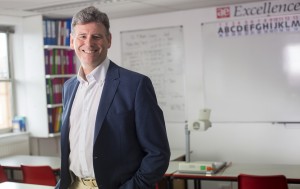Education Advocate
Taking parents concerns to the top table
As a teacher and a tutor, I have always had a passion for helping children reach their full educational potential. This desire to see each child fulfil their academic promise is what drives me and can be traced back to my own school days when not fully comprehending the explanations of the teachers, I had to find my own ways to understand the subjects I was struggling with.
Many years later, having qualified as a teacher, I soon discovered that children were finishing their primary education without the literacy and numerical skills they needed to effectively progress through their secondary education. This was a constant source of frustration for me. When I started tutoring, I came to realise that I could make a substantially greater difference to a child’s education by subsidising the skills they learn at school with more traditional teaching practices. Since the 1960s, successive governments introduced ‘progressive’ methods, focusing on problem-solving at primary level. I believe that before problem-solving can take place, children must first be taught the methodology that underpins each subject. This focus on teaching children the foundational building blocks of each subject is a philosophy that has underpinned both my tuition centre and the Accelerated Education series of educational books.
 During my time as a teacher at the AE tuition centre, I was often in conversation with parents who expressed how incredibly frustrated, even angry, they were with the education system. Many felt that the progressive teaching methods introduced into schools from the 1960s onwards were not adequate to prepare their children for secondary education.
During my time as a teacher at the AE tuition centre, I was often in conversation with parents who expressed how incredibly frustrated, even angry, they were with the education system. Many felt that the progressive teaching methods introduced into schools from the 1960s onwards were not adequate to prepare their children for secondary education.
With the traditional approach used in my teaching methods annually demonstrating success (80-86% of students attending my tuition centre attain a grammar school place of their choice), I decided to take parents’ concerns to the ‘top table’. I approached the then opposition, Nick Gibb, to share my experience and views. When he became Minister of State for Schools, Mr Gibb approached me to join the panel to advise on and discuss the changes and improvements to the maths national curriculum. The new curriculum was launched in 2014.
The aim of the new curriculum is to drive an improvement in mathematics standards across the UK. The UK is currently placed 25th out of 27 developed nations in numeracy (benchmarked against age-related expectations in other nations). I have been making clear the need for changes in the way maths is taught in this country for a long time. It is interesting to note that a number of countries that were previously part of the British Empire have retained traditional approaches to teaching maths. Singapore, for example, uses a more ‘traditional’ maths curriculum and is consistently ranked as the best in the world.* I am committed to continuing to stand up for parents who feel that their children are not getting the best education they possibly can, and will continue to petition the government to move back towards the traditional teaching methods that worked so well for our children in the past.
I am dedicated to helping create a world-class primary education system in the UK in which every child can reach their full potential, and I will continue to use my influence wherever possible to achieve this.
* Trends in International Mathematics and Science Study (TIMSS) world rankings